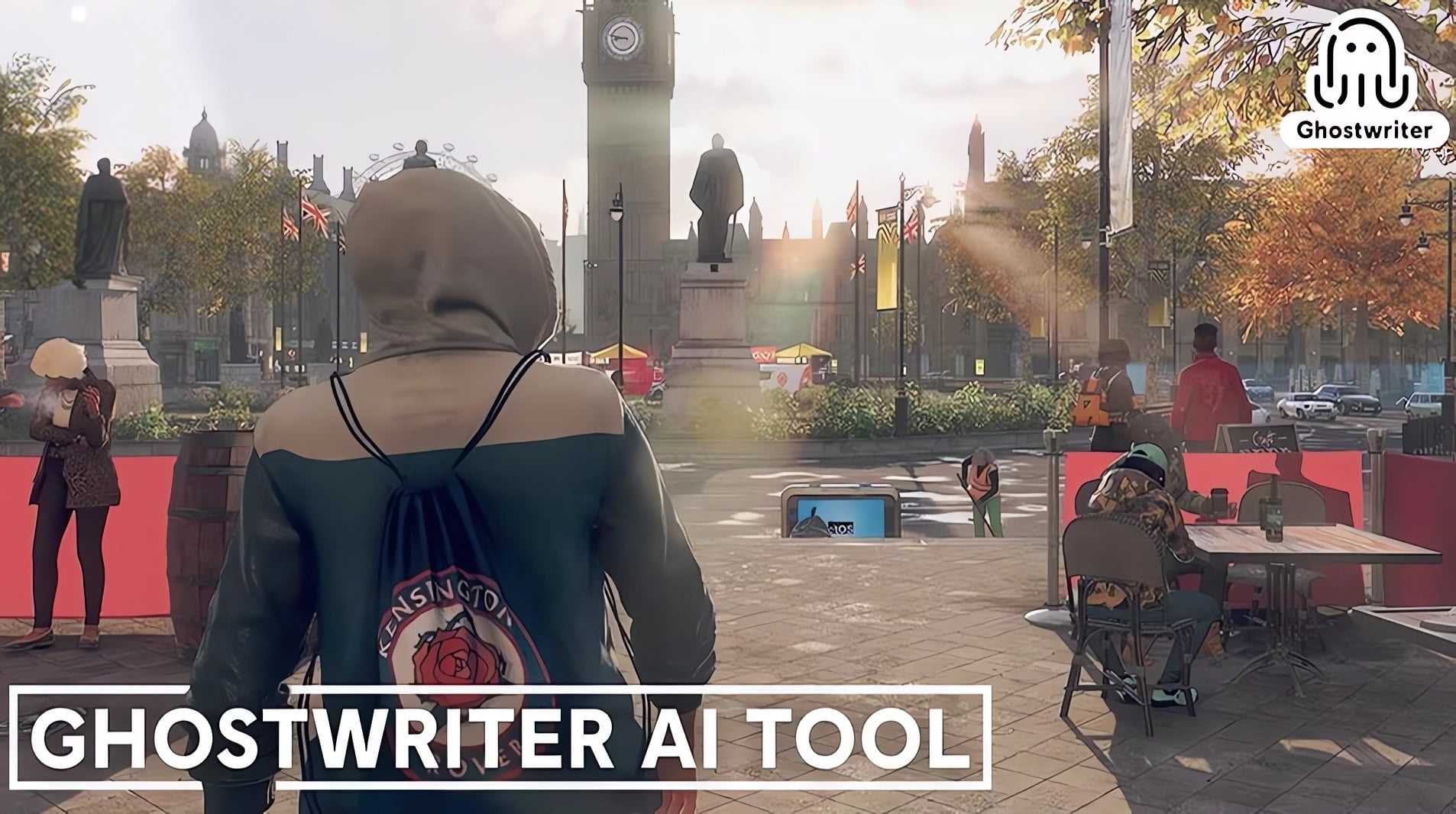Ubisoft's "Ghostwriter" aims to make life easier for video game writers

Generative AI is coming to video games with a new tool from Ubisoft to help writers create dialogue for non-playable characters (NPCs).
Ubisoft, known for hit games like the Assassin's Creed series, Watch Dogs and Far Cry, has revealed that it is using an AI tool called "Ghostwriter" to create dialog for non-playable characters (NPCs) in its games.
These are characters that populate the video game but aren't part of the central narrative. Other Hogwarts students in the Harry Potter video games or passersby on the street in the sprawling landscapes of Grand Theft Auto V. The tool, developed in-house, is currently being tested as of April 2023.
Easing the Burden on Scriptwriters
The goal is to make NPCs more engaging and lifelike while reducing the workload for writers. Ubisoft emphasizes that Ghostwriter is not meant to replace writers, but to assist them in creating what are known as barks.
A bark is a phrase or sound made by NPCs during triggered events, such as if you start a dialogue with them or intentionally punch them. The idea is this allows authors to concentrate on the broader narrative.
Ghostwriter will not be used to create dialog or storylines that are central to the plot. Instead, it is regarded as a productivity tool to help free up time for writers to focus on the elements of the game that matter.
Ghostwriter's Learning Process
The Ghostwriter process begins with scriptwriters defining a character and the desired interaction or utterance. The AI tool then generates variations for the writers to choose from and modify as needed.
Using pairwise comparison for evaluation and improvement, Ghostwriter offers two choices for each generated variation, with the writer selecting the preferred option. Over time, as the AI tool accumulates thousands of author choices, it becomes increasingly accurate and effective.
Data concerns
Interestingly, Ghostwriter is not built on ChatGPT or GPT-4, and Ben Swanson, a research scientist at Ubisoft, advised game developers not to use these pre-existing deep language learning models, but to build their own.
He cites the pitfalls of relying on third-party companies with little transparency about the data they use to train their models. He also worries about the legal gray area of using dialog based on other data and potential lawsuits down the line.
Addressing Criticism
Following Ubisoft's announcement, some game developers criticized the company on social media, urging it to invest in human writers. Other writers suggested that editing ghostwritten NPC dialog would take longer than writing their own.
I have played too many AMAZING games with top notch creative soundtracks, gameplay and visuals that honestly almost ruin the experience with bad writing/dialogue. Publishers, PLEASE spend money on solid writers. It’s worth it. https://t.co/xQJEqi0qjb
— Keahu Kahuanui (@KeahuKahuanui) March 22, 2023
Ubisoft responded via tweet, emphasizing that Ghostwriter was developed together with writers and is designed to generate additional variations for short NPC lines. In short, writers should use it to create first drafts of NPC dialog, not just copy and paste the final product.
AI News Without the Hype – Curated by Humans
As a THE DECODER subscriber, you get ad-free reading, our weekly AI newsletter, the exclusive "AI Radar" Frontier Report 6× per year, access to comments, and our complete archive.
Subscribe nowAI news without the hype
Curated by humans.
- Over 20 percent launch discount.
- Read without distractions – no Google ads.
- Access to comments and community discussions.
- Weekly AI newsletter.
- 6 times a year: “AI Radar” – deep dives on key AI topics.
- Up to 25 % off on KI Pro online events.
- Access to our full ten-year archive.
- Get the latest AI news from The Decoder.